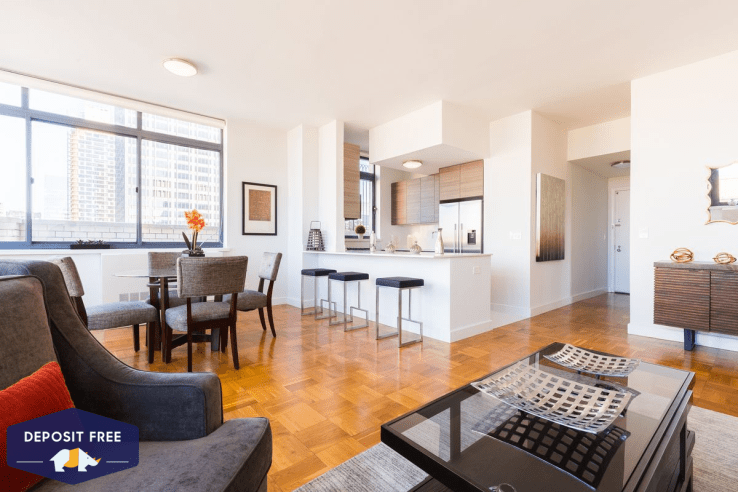Rhino is getting rid of security deposits for rental apartments

Arguably the most frustrating part of renting an apartment, especially in an expensive city like New York, is dealing with the security deposit. One startup wants to make renting easier by getting rid of security deposits, with a solution that is beneficial for both renters and landlords.
Here’s how it works:
For a monthly fee Rhino provides your landlord with an insurance policy which can be used to reimburse potential damages that would normally be covered by a security deposit.
Users can either be new or current renters – if you’re applying to live in a unit you can use Rhino’s service to avoid a security deposit in the first place, or if you’re a current renter at a Rhino-supported building you can sign up and get a full refund of the deposit you already paid.
Uses pay an average of $10-$20 a month, with the specific price depending on your monthly rent/required deposit, yearly income and other similar factors. On average users can expect to pay $19 a month to forgo the deposit on an apartment that costs $2,500-$3000 per month, with that fee often being “significantly” reduced the second year after Rhino sees that you’re a trustworthy renter.
Rhino was founded by Paraag Sarva and is being funded/incubated by Kairos, a $25M venture fund that invests in companies building solutions to real-world issues facing the middle class and abroad.
The solution provides benefits for both renters and landlords.
First and perhaps more obviously, renters get to forgo paying (or get a refund of) an expensive security deposit. For some this can be money that they turn into an emergency fund, pay down debt or just spend on other things. For others it can enable more housing options, as often times renters can afford a new unit’s monthly rent but may not have the cash on hand to pay the deposit, especially if their existing deposit is still tied up with their current landlord.
Of course figuring out if this is worth it to you is going to depend on your unique financial situation – some may have a lot of cash on hand and think it’s a waste to pay a monthly fee when you can just give a cash deposit. Others may see tremendous benefit in that extra cash, or even find ways to get a higher return on it. For example, Rhino’s average annualized fee comes out to about 8% of the security deposit, meaning if you can invest and get a better return than 8% you’d actually make money using the service.
There are also benefits for landlords – the insurance policy they get in lieu of a cash deposit covers double the amount of the one month’s rent they’d typically get, and all claims are paid within 24 hours directly from Rhino. This lets landlords avoid any frustrating arguments with tenants about damage. It also could prove to be a good advertising tool for landlords, especially in competitive markets in New York where some luxury buildings already offer concessions like free rent or reduced security deposits.
To be clear, this isn’t renters insurance and tenants are still responsible for any damage that was their fault – but Rhino says this won’t include normal wear and tear.
The startup is launching today with support for 21,000 units in New York, ranging from those in rent-stabilized buildings to luxury units owned by Glenwood and Stonehenge.